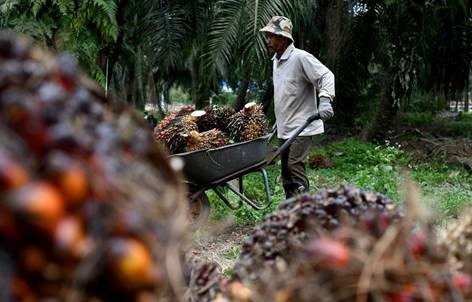
KUALA LUMPUR: Mid-sized upstream players will likely see better share price performances in the near term despite having factored in a much lower crude palm oil (CPO price) assumption of RM2,700 per tonne for 2021-2022.
Hong Leong Investment Bank Bhd (HLIB Research) said decent valuations and strong earnings in coming results season will likely push share prices for mid-sized upstream players namely Hap Seng Plantations Holdings Bhd, IJM Plantations Bhd and TSH Resources Bhd.
Analyst Chye Wen Fei said CPO price will still remain at a decent level over the long term as the output recovery will be partly offset by low edible oil stockpile among key producing countries and consuming countries.
Indonesian government's commitment on its B30 biodiesel mandate in 2021 will also support palm oil consumption, despite having anticipated CPO price to weaken from the second quarter (Q2) 2021 onwards.
"Timing of production recovery of edible oils, including soybean and palm oil, remain unknown, which in turn depends heavily on weather condition," Chye said in a research note today.
He said a delay in production recovery in edible oils (if it happens) will result in CPO price staying at an elevated level for a longer period of time.
Assuming that CPO price will remain at RM2,700 per tonne for 2021-2022, mid-sized upstream plantation companies are still undemanding, which in turn indicates decent upside potential.
"We also maintain a Neutral stance on the plantation sector. We believe current high CPO price will not sustain over the longer term," he said, adding that small-to-mid cap plantation players will likely outperform the big cap players, due to their emphasis on upstream plantation segment.
Based on the quarterly fresh fruit bunch (FFB) production data, the research firm said mid-sized upstream plantation players will likely report better performances in the coming results season both quarter-on-quarter (QoQ) and year-on-year (YoY).
This is due to higher FFB output and CPO selling prices (on QoQ basis) and higher CPO selling prices, which will more than mitigate lower FFB output on YoY basis.
Chye said the surge in CPO price more than 70 per cent since mid-May 2020 was not entirely reflected in KL Plantation Index, which rose by a smaller magnitude of less than 20 per cent during the same period.
"CPO price has surged by 70 per cent from its low of RM2,022 per tonne in mid-May 2020, due to concerns on edible oil supply tightness (arising from La Nina phenomenon and labour shortfall in Malaysia) and aggressive restocking activities particularly among the major edible oil-consuming countries, which has resulted in low stockpile level."
The decoupling between share prices of plantation companies and CPO price could be due to investors' concern on CPO sustaining at high level over the longer-term (particularly, when output eventually recovers).
Chye said high valuation of listed planters in Malaysia compared to neighbouring peers, and investors' growing emphasis on environmental, social and governance (ESG) may have resulted in investors shying away from the sector despite earnings prospects improving.
Source: https://www.nst.com.my/business/2021/01/659310/mid-sized-upstream-players-perform-better-hlib-research

